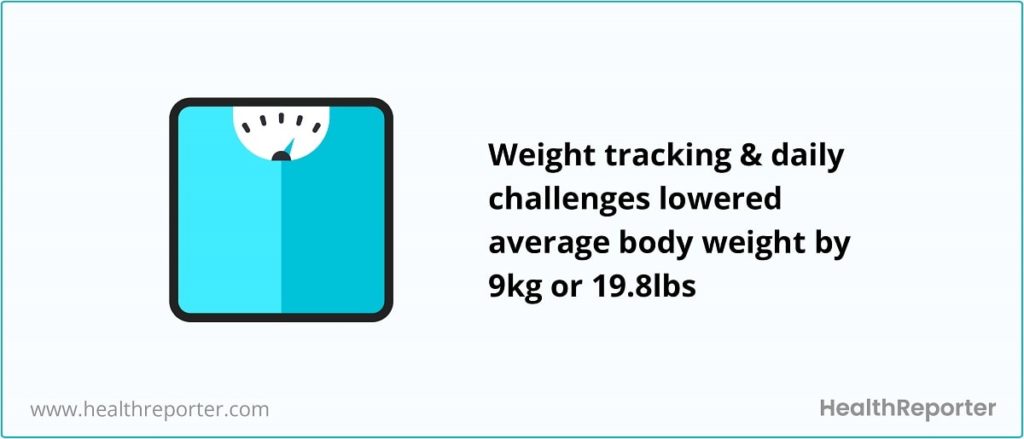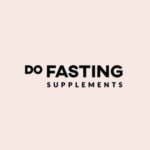10 Fasting Tips to Boost Your Weight Loss Results
People fast in different ways, but there are certain tips that could help you follow this eating plan safely. Beginners especially need to know the do’s and don’ts of fasting. In this article, we provide the best tips regarding intermittent fasting, including general facts about this type of weight loss.

In today’s wellness industry, fasting has become a popular way to lose weight.
People can refrain from eating food to burn more stubborn fat. Others might try intermittent fasting to gain long-term health benefits. Either way, this weight loss method has been proven to offer great results.
Beginners may feel overwhelmed by the countless fasting types, educational content, and online guidance. If you’re new to the trend, don’t worry, because we have lots of tips to share.
In this article, you’ll discover 10 fasting tips, including information about how intermittent fasting works.
Did You Know?
In a 2022 global survey, 41.81% of respondents said it took less than a week to feel significantly less hungry after having started intermittent fasting.
10 Intermittent Fasting Tips for Beginners
Now, for those who have never tried intermittent fasting, there’s nothing to be afraid of. Your weight loss journey is completely personal and can be molded into something that feels right. Intermittent fasting doesn’t need to be complicated when it comes to losing stubborn weight.
Here are 10 tips to guide you through intermittent fasting:
#1 Start slowly
Some people may feel the urgency to lose weight.
You might be tempted to choose the hardest fasting type and start with that. However, going straight into your fast, especially one not suited for beginners, could lead to complications.
The idea is to start with one or two times of intermittent fasting per week. This means you’ll choose dedicated fasting days that are spread out. After that, gradually increase your fasting periods until you feel comfortable with the new eating pattern.
#2 Try different IF regimens
You can experiment with different regimes that challenge your personal progress. For example, fasting for 12 hours might not offer noticeable results, so you turn to longer fasting types that tend to burn more stubborn weight.
There is no harm in changing your scheduled eating plan. Some people might increase their calorie intake during the eating window to support the fat-burning process. Just remember that your experience with IF is completely unique and can be altered to suit your goals.
#3 Remember to stay hydrated
Drinking lots of water can reduce those intense hunger cravings. This is because water naturally suppresses your appetite and tells the brain that you don’t need to eat more food. Of course, during extended periods of fasting, adequate water consumption will help you navigate the fast.
The daily recommendation is 12 cups for men and 9 cups for women. Getting enough water ensures your body can function properly throughout the fast. If you don’t like this plain beverage, add a small amount of fresh lemon or lime juice to make it more enjoyable.
#4 Eat nutrient-dense meals
People who eat calorie-dense foods gain essential nutrients before fasting. Even though your body burns through fat, you still need a balanced diet that strengthens the metabolism. A fast metabolism means greater fat loss, higher energy levels, and better sleep quality.

- Useful progress tracker and calendar
- Calorie tracker to track daily caloric intake
- Over 5,000 nutritious recipes
Consume meals containing protein, healthy fats, dietary fiber, and vitamins. For example, salmon with green vegetables, baked chicken, and whole fruits are good options. You’ll feel extreme hunger if you don’t eat enough or significantly reduce your normal daily calories.
Don’t forget that eating breakfast is still very important. You can have this meal later in the day, but never skip meals when losing weight.
#5 Do not overeat
Of course, eating too much is another downfall of your fat loss journey. People might believe that increased food consumption will stop them from feeling hungry. This is true to some degree, but exceeding your overall caloric intake can lead to weight gain and high blood sugar levels.
You can get a food journal that logs calorie restrictions and meal times. Tracking what food you eat daily will maintain low blood sugar levels and help you lose more weight. For those with a history of disordered eating, avoid intermittent fasting or speak with a medical professional.
#6 Keep track of your fasting journey
A food tracking journal leads nicely into the next fasting tip.
You can’t progress if you’re unaware of your strengths and improvements. For example, if you feel more hungry around 4 PM, you might note that down. This should help you find solutions that reduce cravings and other struggles during a fast.

It might also be worth tracking your physical progress to see any noticeable changes. The DoFasting app could help you with this, as it provides the necessary tools for fat loss. You can search through fasting programs that help you build strong and healthy habits.
DoFasting also has its own progress tracker that shows weight progression, BMI changes, and time left to reach your goals. The calendar is there to motivate people and guide their personal health and wellness journey.
#7 Add workouts to your schedule
Building a great workout routine can boost your fasting results. Daily caloric restriction while following IF methods will help, but there’s always more you can do to lose weight. Cardio-based exercise encourages the body to burn extra calories, naturally leading to fat loss.
Working out while fasting is safe and healthy. You could go for a long-distance run or walk to get those happy hormones pumping through the body. Drinking water during exercise is also important, so don’t forget about hydration when adding workouts to your schedule.
#8 Listen to your body
The body knows exactly what’s right and wrong with a diet.
Feeling sick after your last meal could suggest you’re consuming food too quickly. Eat slowly or reduce the amount of food you have before the fast.
Some people also go into starvation mode without realizing it. This happens when you go too long without eating proper food. For example, people who follow alternate-day fasting generally eat empty calories that don’t offer any nutrients.
#9 Know what breaks a fast and what doesn’t
There are certain foods and drinks you should eat to break a fast safely.
Since your body has gotten used to an empty stomach, instantly consuming heavy foods can lead to poor digestion and serious constipation.

- Suppresses appetite
- Reduces cravings
- Encourages fat loss
Instead, opt for gentle meals that are easy to digest. This could be bone broth, herbal teas, eggs, dried fruits, and nutrient-dense smoothies. Junk food and dairy products should be avoided due to the negative effects on your bowel movements.
If you don’t want to break a fast, but still want something to drink, choose plain water, black coffee, or unsweetened tea. Don’t add milk or sugar to any of these calorie-free beverages. There are also specific supplements on the market that can help transition to longer fasts.
#10 Stay busy, so you don’t think about food
So, you’re sitting there, and all you can think about is those delicious meals. This is the worst thing you can do while doing intermittent fasting.
Plan out your day beforehand to stop those intrusive thoughts. You could take a short nap in the afternoon or clean the house during your fast. Try not to look at the clock throughout the fasting period, as this could feed the hungry growls in your stomach.
It’s worth trying the 12-hour fast to find a schedule that keeps you distracted. This method only involves fasting for half of the day, so you don’t have to be awake for most of it.
How Does Intermittent Fasting Work?
Intermittent fasting is an eating pattern that cycles between periods of eating food and then refraining from food completely. Not consuming calories triggers the fat-burning process, which naturally helps you lose more weight over time.
Many types of fasting encourage the metabolic switch. This is what happens when your body isn’t receiving enough food, so it turns to your fat stores for energy. People usually experience weight loss after a few weeks of trying their chosen fasting method.
For example, you could eat from 11 AM to 7 PM and then fast until 11 AM the next morning. During those 16 hours, the body burns through glucose and turns to body fat for an extra boost. Over the next few weeks, you should see noticeable results in your physique.
How Long Should Beginners Fast for?
Beginners are advised to try the 12-hour or 16-hour fast. This depends on how much you know about intermittent fasting and what you wish to achieve personally. For example, greater weight loss comes from 16-hour fasts, so it may be worth trying that first.
You might feel overwhelmed if you’re new to this weight loss method. Not eating for a certain amount of time can sound very challenging. Of course, intermittent fasting is safe when performed correctly, so start with a fasting type that feels easy, comfortable, and motivating.
Some people attempt the 16-hour fast straight away. This means you’ll eat regular meals in an 8-hour window and fast for the remaining time. For people who are more cautious of this fasting type, try splitting your day into 12-hour windows, meaning you’ll have longer to eat normally.
FAQs
There are many health benefits of intermittent fasting. Some include decreased blood pressure spikes, better heart function, stronger athletic performance, and easier concentration. Try intermittent fasting regularly to reap these long-term benefits, and watch how your body transforms.
Yes, sleeping does count as fasting. During your sleep, the body isn’t digesting food, meaning it stays in autophagy and ketosis. Beginners can try the 12-hour fast to see how fasting suits their goals, but it might be worth trying longer fasts to see more fat loss results over time.
No, you don’t have to fast every day, but following this weight loss method consistently will help you notice more results. Some people choose to fast for 24 hours twice a week and then eat normally on the other days, as this allows their bodies to gain important nutrients again.
A Word From Our Nutritionist
By now, beginners should know all of the tips and tricks. You can try the fasting diet safely without experiencing extreme hunger or restricting calories too much. Just remember that everyone has to start somewhere, so don’t feel let down if you can’t get things right.
One of the issues people struggle with is hunger pangs. Your growling stomach might be demanding food, and so you reach for a snack, which breaks the fast. Following our handy tips about continuous hydration and a new eating routine can give you the best head start.
Always set a healthy diet before trying any fat loss method. Nutrient-dense foods are what fuel your fasting period and keep your metabolism strong throughout. To lose weight, maintain balanced meals, and create an eating window that doesn’t feel so restricted and challenging.
Speak to a doctor if you currently have any short- or long-term health conditions. Certain wellness professionals can determine whether intermittent fasting improves or worsens your overall health. Everyone is different, so remember that when trying a fasting diet.
Conclusion
So, do you feel ready to start your intermittent fasting journey?
There’s no right or wrong way to navigate your fasting window. Some people might prefer to avoid food for longer, and others could focus on consuming more nutrient-dense foods. It all depends on your fat loss goals, so experiment with fasting to see what feels right.

















































 Select your language:
Select your language: 








